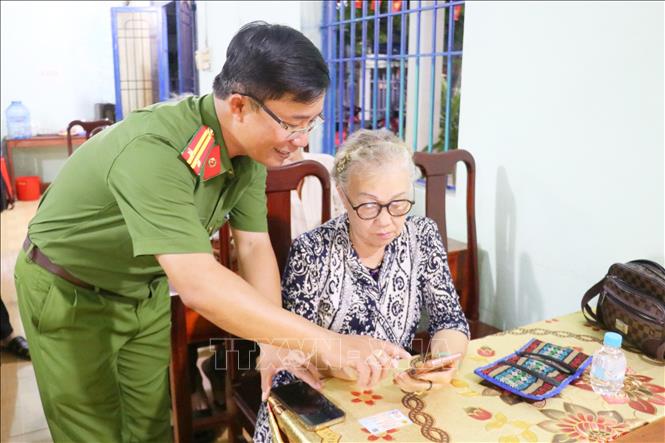
On September 19, the Politburo and the Secretariat issued Conclusion No. 192-KL/TW on the implementation of the law on decentralization, delegation of power, and division of authority when operating two-level local governments. The document acknowledged that the Central Government agreed with the reports of the Government Party Committee, the National Assembly Party Committee, the Ministry of Home Affairs Party Committee, and ministries and branches that actively and proactively advised, proposed tasks, and promptly resolved many difficulties and obstacles. Localities were flexible and determined in organizing implementation, contributing to improving the effectiveness of this model.
The Politburo and the Secretariat assigned the Party Committee of the National Assembly to direct the promulgation of legal documents, ensuring unity and synchronization. The National Assembly, through supervision, discovered shortcomings and promptly proposed amendments. The Party Committee of the Government directed ministries and branches to review the feasibility of decentralization and delegation; continue to improve specialized laws; and strengthen guidance and support for localities.
The Ministries of Home Affairs, Justice, Finance, Education and Training, Science and Technology, Construction, Agriculture and Environment have been assigned specific tasks. Ministers, secretaries of provincial and municipal Party Committees, and chairmen of provincial and municipal People's Committees must directly inspect and evaluate tasks at the commune and ward levels to provide timely guidance. The conclusion also requires localities to adjust, propose amendments or issue documents suitable to reality; focus on overcoming difficulties, comprehensively strengthening the commune level, ensuring a smooth and effective operating model.
Previously, on September 15, the Central Committee issued Official Dispatch No. 59-CV/BCĐ on the arrangement of public service units, state-owned enterprises and focal points within agencies and organizations in the political system. The Official Dispatch requested the Standing Committee of the Government Party Committee to lead and direct ministries and ministerial-level agencies to review the apparatus, ensuring effectiveness and efficiency. In particular, focusing on reviewing functions and tasks, perfecting the decentralization and delegation of powers; reforming administrative procedures to ensure thoroughness, efficiency and rationality; streamlining the internal apparatus, avoiding duplication of functions and tasks.
The Ministry of Finance and the Ministry of Home Affairs shall preside over and coordinate with ministries and branches to review and propose plans to reorganize state-owned enterprises, public service units, schools, and medical facilities. The Standing Committee of the National Assembly Party Committee shall coordinate with the Standing Committee of the Government Party Committee to study and propose amendments and supplements to the promulgation of laws and resolutions to create a legal basis for reorganizing the apparatus. The Standing Committee of the Fatherland Front Party Committee and central mass organizations shall direct the urgent completion of the reorganization and streamlining of mass organizations and affiliated press agencies.
The Standing Committees of the Provincial and Municipal Party Committees, the agencies under the Office of the President, the Supreme People's Court, the Supreme People's Procuracy, and the State Audit Office must also review and streamline their organizations, ensuring that people and tasks are clear and there is no overlap. The Central Organizing Committee shall preside over the development of a suitable model of Party organization in universities and study the streamlining of Party agencies, public service units, and provincial Fatherland Front agencies.
Last week, the Government issued Resolution No. 07/2025/NQ-CP on policies and regimes for subjects affected by the restructuring of the apparatus and administrative units at all levels according to Conclusion No. 183-KL/TW of the Politburo and the Secretariat. The Resolution stipulates policies for 5 specific groups of subjects and, depending on the specific case, are entitled to immediate retirement, early retirement, termination of employment, retention or social insurance and unemployment insurance. The allowance level is calculated based on the working time, not exceeding 24 months of current salary. The source of payment is from the state budget, local budget or trade union financial source. The Resolution takes effect from September 17, 2025.
The progress in operating the 2-level local government model is very clear. Recently, reporting at the Government meeting, Minister of Home Affairs Pham Thi Thanh Tra said: Problems related to authority, decentralization, and division of authority are being resolved; basic information technology system incidents have been overcome. By September 15, 741 administrative procedures had been decentralized from the central to local levels; the organization of 465 specialized agencies under the People's Committees of 34 provinces and cities had been completed; 9,916 specialized departments under the People's Committees of 3,321 communes, wards, and special zones had operated stably and effectively.
At this meeting, welcoming the Ministries for sending working groups to 34 localities, Permanent Deputy Prime Minister Nguyen Hoa Binh also noted that, according to their functions, tasks, and authority, the Ministries will guide localities in implementing any remaining issues. The Ministry of Finance will urge the resolution of policies and regimes, build resources, and arrange facilities and equipment for localities; and clarify why many people have not yet received the regime according to Decree 178.
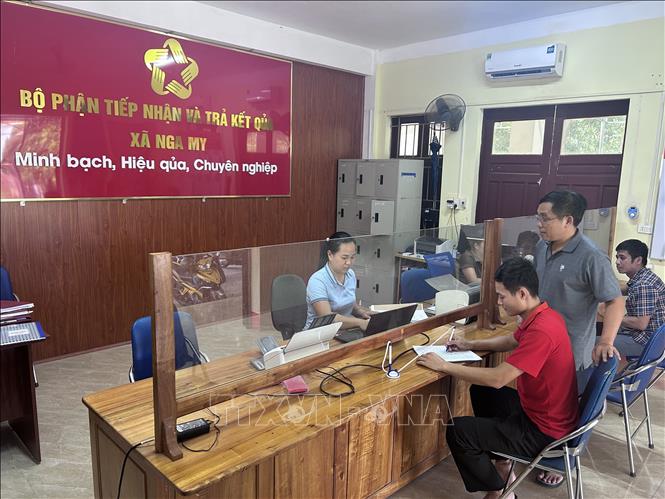
From a local perspective, many places have issued resolutions on decentralization of revenue sources and expenditure tasks between the provincial and communal levels; opening accounts at the State Treasury for communes. Although the payment of salaries and policies is not yet complete in some places, it is following the roadmap. Many localities have directed and organized training courses on information technology application and digital transformation. However, reality also shows that there are still localities that are slow in implementation; difficult places have not received proper support; commune-level personnel are lacking in quantity and expertise; there are still problems in the information system and in in-depth decentralization; payment policies and regimes are still slow in some places; financial resources and working means are not enough in some places.
In Ho Chi Minh City, administrative procedure reform still shows many difficulties. 4.5% of files are still late, the rate of online files is low; the index of serving people and businesses in the electronic environment of the City is among the bottom group in the country. The arrangement of human resources at many commune-level units does not meet the requirements of the workload, leading to overload, not ensuring progress and quality of work, one civil servant has to undertake many different jobs. The information technology infrastructure is not synchronized, causing difficulties for people; there is a lack of connectivity in technology application, and a lack of a team of professionally trained civil servants.
Recognizing these difficulties and problems, Mr. Nguyen Manh Cuong, Vice Chairman of Ho Chi Minh City People's Committee, requested communes, wards and special zones to promote the digitization of records, both upgrading facilities and implementing and increasing the rate of online public records throughout the process.
In Nghe An, the process of operating this innovation model has also revealed limitations that need to be promptly overcome. To remove obstacles, the Provincial People's Committee has recently established 4 working groups headed by Vice Chairmen of the Provincial People's Committee; together with leaders, representatives of departments, branches and Chairmen of People's Committees of communes and wards. The groups also have representatives of the Provincial People's Council, the Office of the National Assembly Delegation - Provincial People's Council and the Standing Committee of the Provincial People's Committee Party Committee.
Source: https://baotintuc.vn/thoi-su/tinh-gon-bo-may-vung-chac-hon-tu-nhung-chuyen-dong-moi-20250921083723355.htm




![[Photo] Soldiers guard the fire and protect the forest](https://vphoto.vietnam.vn/thumb/1200x675/vietnam/resource/IMAGE/2025/9/27/7cab6a2afcf543558a98f4d87e9aaf95)













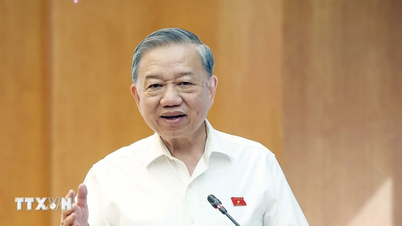
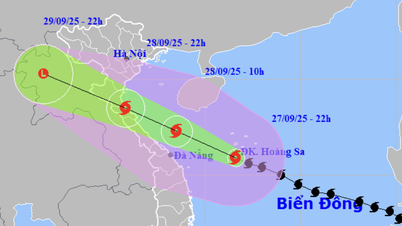










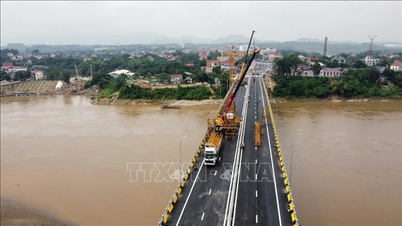

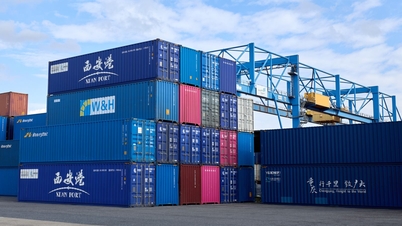



![[Photo] Prime Minister Pham Minh Chinh attends the 1st Hai Phong City Party Congress](https://vphoto.vietnam.vn/thumb/1200x675/vietnam/resource/IMAGE/2025/9/27/676f179ddf8c4b4c84b4cfc8f28a9550)

























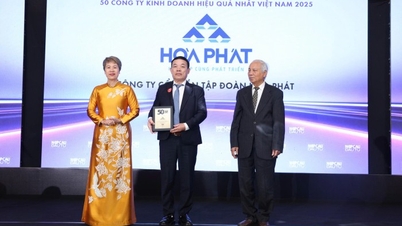




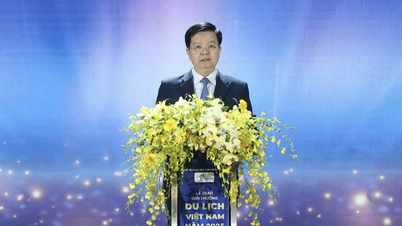















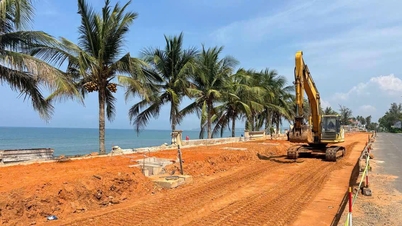
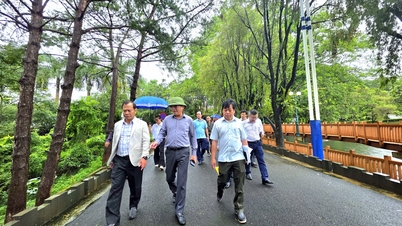




















Comment (0)